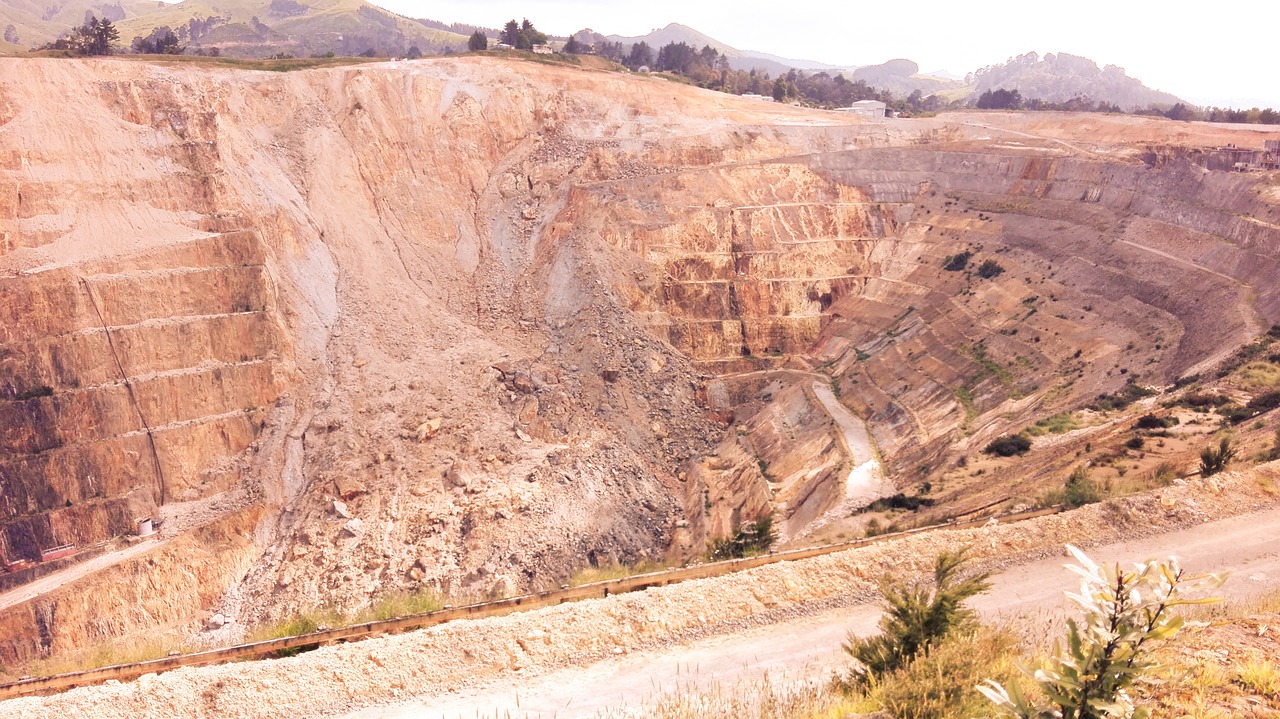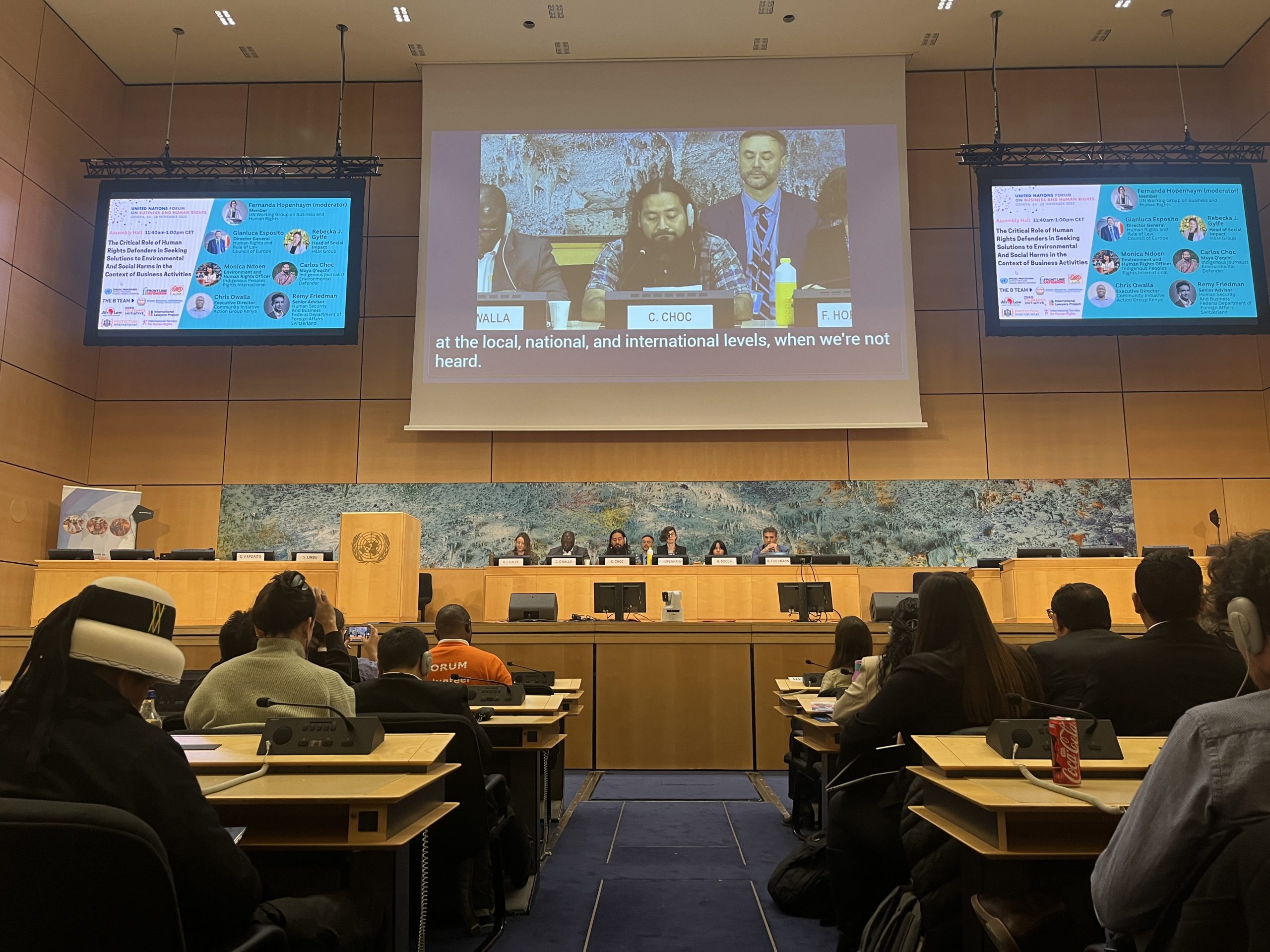A group of UN Special Procedures – including the Working Group on Business and Human Rights, the Special Rapporteur on adequate food, the Special Rapporteur on the rights to water and sanitation, Toxics, among others – have sent a communication calling on Cameroon to urgently address severe human rights and environmental harms resulting from mercury use in gold mining operations in the country’s Eastern Region. In parallel, the UN experts also sent a second communication calling on China to address the role and responsibility of Chinese companies implicated in Cameroon’s gold mining operations and to ensure that business enterprises domiciled in its territory respect human rights throughout their operations abroad
These communications included inputs from civil society organisations, including Forêts et Développement Rural (FODER) and ISHR, and highlights the systemic barriers faced by human rights defenders and affected communities seeking justice.
Despite a 2019 ban, mercury continues to be widely used by both artisanal miners and foreign companies such as Mencheng Mining and Zinquo Mining. According to a research, an average daily use of 40 litres of mercury and cyanide were found in waterways near gold washing ponds used by Chinese companies. Rivers like the Djiengou, Fell and Lom have been polluted, fish populations have decimated, and communities have been left without safe drinking water. The UN communication also highlighted the impacts of the use of chemicals, particularly mercury, on the aquatic biodiversity.
The effects of mercury on human rights are severe. Residents have reported increased miscarriages, chronic illness, and toxic exposure among children working in the mines. In some areas, school attendance has dropped dramatically, with only a handful of students remaining in classrooms. A recent study found over 70 percent of miners had mercury levels exceeding WHO safety standards. Environmental human rights defenders are denied access to sites and face barriers to legal action, especially given that many foreign companies lack identifiable managers or offices.

Courtesy of Forêts et Développement Rural (FODER)
Critically, as the communications stress, human rights defenders seeking accountability and redress face significant barriers. Environmental defenders report it being hard to access mining sites and information on how they are operating as well as systemic obstruction of legal action. The communications noted particular concern that many foreign companies operating in the area lack transparent or identifiable management structures and offices, impeding defenders’ ability to hold these actors legally accountable.
Cameroon’s regulatory shortcomings constitute violations of its obligations under international human rights treaties, including the Minamata Convention on mercury, which Cameroon ratified in 2021, the International Covenant on Economic, Social and Cultural Rights (ICESCR), and the African Charter on Human and Peoples’ Rights.
Moreover, the adoption of the 2023 mining code without meaningful consultations with affected communities, human rights defenders, or civil society exacerbates these issues by entrenching opacity. The UN experts have urged the Cameroonian government to ensure enforcement of the mercury ban, guarantee transparency in the licensing and oversight of mining activities, provide accessible healthcare to exposed communities, and strengthen protections and support for environmental human rights defenders.
The communications also underscores the responsibilities of businesses operating in Cameroon’s gold mining sector under the UN Guiding Principles on Business and Human Rights. Companies are required to conduct thorough human rights due diligence to identify, prevent, and mitigate negative impacts, particularly those linked to hazardous environmental practices involving mercury and other toxic substances.
Additionally, the Special Procedures urge the Cameroonian government to establish and strengthen effective judicial and extrajudicial mechanisms that enable affected communities to access justice and seek reparations for damages caused by corporate negligence or misconduct.
These communications amplifies long-standing demands for accountability from Cameroonian civic society organisations, emphasising the urgent need to dismantle barriers faced by human rights defenders and to prioritise human and environmental rights over corporate interests.





